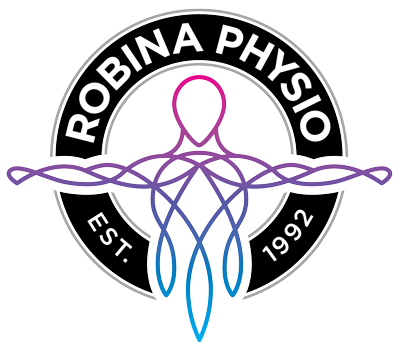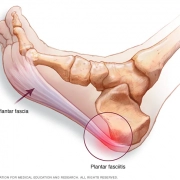Plantar Fasciitis
Plantar Fasciitis
By Aaron Woolley, Physiotherapist.
Plantar fasciitis is a highly prevalent condition, impacting millions of individuals annually and standing as the primary cause of heel pain globally. Despite its widespread occurrence, many individuals lack a comprehensive understanding of its nature and underlying causes. At Robina Physio on the Gold Coast, we possess exceptional expertise in effectively treating this condition, and it is our sincere hope that this information empowers you on your journey to recovery.
What is Plantar Fasciitis?
The plantar fascia is a dense and fibrous band of connection tissue much like a tendon. This structure spans the bottom of the foot, originating from the heel, attaching to the ball of the foot and functions to support the arch.
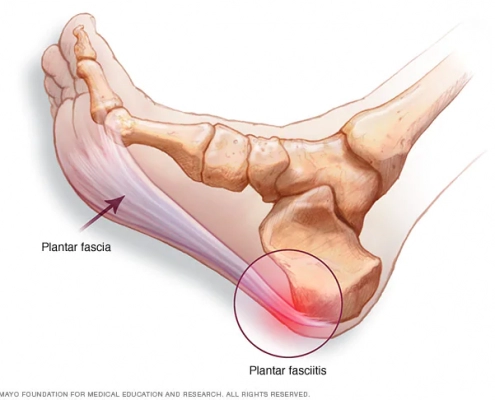
The plantar fascia is designed to absorb the high stresses and strains we place on our feet. But, sometimes, too much pressure damages these tissues. As a result, inflammation is produced by the body which then results in the pain and stiffness associated with plantar fasciitis.
Heel Spurs
Heel spurs can develop when there is prolonged and intense tension on the plantar fascia, resulting in the fascia’s attachment site experiencing overload. It is important to note that the spur itself is not the primary issue, but rather a secondary outcome of the strain on the fascia. Surprisingly, approximately 1 in 10 people may have heel spurs, but only about 1 in 20 individuals with heel spurs (5%) experience foot pain. Hence, it becomes evident that the presence of the spur does not necessarily cause plantar fasciitis, and the pain associated with it can be effectively treated without the need to remove the spur.
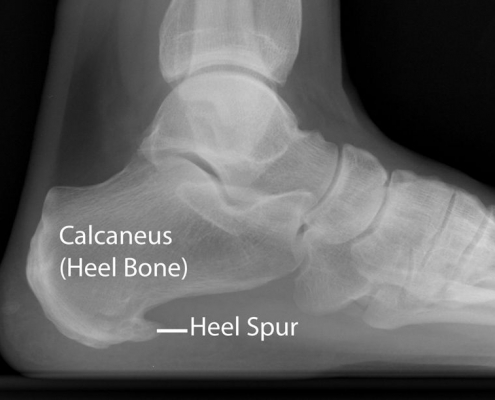
How Does Plantar Fasciitis Present?
The most prevalent symptoms of Plantar Fasciitis encompass:
- Pain on the underside of the foot, near the heel.
- Pain experienced during the initial steps after getting out of bed in the morning.
- Pain that arises after extended periods of sitting or standing.
- Pain exacerbated by physical activities such as walking, running, or jumping.
Several risk factors contribute to the development of Plantar Fasciitis, which include:
- Tight calf muscles.
- Poor arch control, such as having flat feet or extremely high arches.
- Engaging in repetitive impact activities like running or jumping.
- Starting or intensifying exercise or activity levels.
How is Plantar Fasciitis Diagnosed?
At Robina Physio, an accurate diagnosis of Plantar Fasciitis is achieved through a comprehensive examination conducted by our experienced physiotherapists. This process involves a detailed discussion of your symptoms, followed by a thorough physical assessment of your foot structures and lower limb biomechanics. In certain instances, additional investigations, such as X-ray, Ultrasound, or MRI scans, may be recommended to complement the evaluation and provide a comprehensive understanding of your condition. Rest assured, our team is dedicated to delivering precise and effective diagnoses to guide your treatment plan.
How Do We Treat Plantar Fasciitis?
At Robina Physio on the Gold Coast, we use a variety of treatment modalities to manage your heel pain.
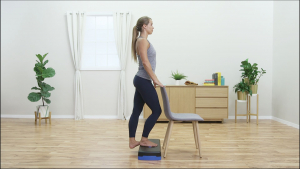 Treatment options we commonly use include:
Treatment options we commonly use include:
- Soft tissue massage and trigger point therapy of the calf and foot
- Acupuncture and dry needling
- Supportive taping
- Footwear and orthotic advice
- Exercise and activity load management
- A lower limb stretching and strengthening program
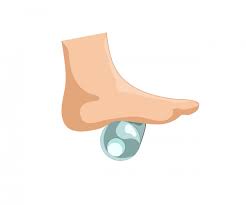 Technique correction and return to running advice
Technique correction and return to running advice- Use of pain-relieving devices e.g. Strassburg sock and my favourite rolling your foot on a frozen bottle.
Unfortunately for some people conservative management does not fully resolve their pain. For these people combining physiotherapy with injection therapy can be very effective. The next tier of treatment available would include:
- Steroid Injections
- PRP Injections
If your suffering with Plantar Fasciitis or foot pain the Robina Physio on the Gold Coast is has to expert care available to help get you pain free and moving again. Contact Us on (07) 55787233 or BOOK ONLINE.
